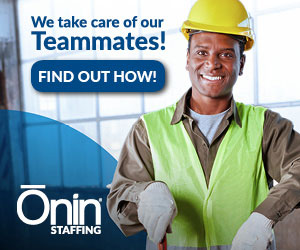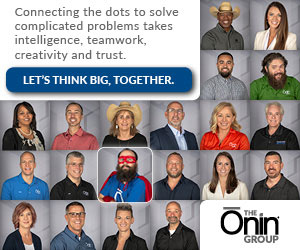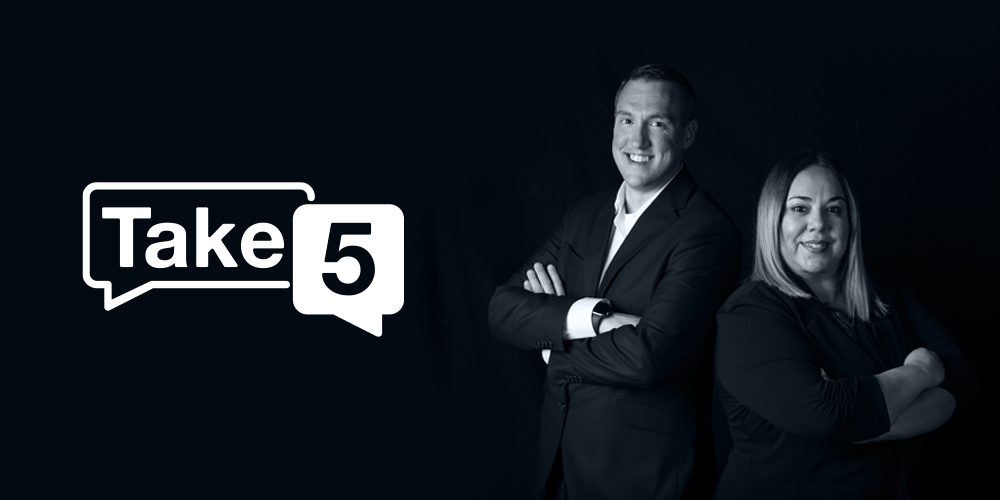
Interview by Shane Minor
Photos by Stephanie Hudson
Effective leadership skills are essential in an era filled with change and uncertainty. Enter Liz and TJ: two leaders who remind us that amidst uncertainty, authentic leadership can be both a beacon and a bridge. While their individual careers boast remarkable achievements, their leadership skills truly stand out.
Liz Aldana has long served as an Area Manager known for her ability to orchestrate teams that operate at peak performance. Today, Liz shines as the Regional Manager leading the Midwest to new heights in a uniquely challenging workforce environment.
TJ Speich is a former recipient of the coveted Sales Driver of the Year award who now serves as the Director of Strategic Growth and radiates a contagious drive. Through collaboration, Liz, TJ, and their teams have synergized to set the bar exceptionally high as they unravel solutions to today’s most challenging workforce issues.
Liz and TJ stand out, not just by seeing things differently but by carving out a genuine path in leadership. Their approach is one that’s rooted in reality and collaboration while recognizing adapting isn’t just good – it’s essential in today’s age. This is Take5.
Shane
Welcome to Take5. I’m your host, Shane Minor, and I am here with Ōninites TJ Speich and Liz Aldana. This is our first time doing Take5 with two people at the same time, but Liz and TJ have become this dynamic duo at Ōnin. TJ was the Sales Driver of the Year in 2022, and Liz supported him a lot in that process. So, let’s start with the first question. What has been your greatest accomplishment professionally up to this point in your career?
Liz
For me, it’s being able to be part of other people’s success.
Our region was part of an acquisition four years ago. Seeing where our Ōninites are at this point in time and having four managers in the area versus having none prior to the acquisition is very satisfying. That’s the biggest accomplishment so far. One of many to come.
It’s inspiring to see how Ōnin has given us the opportunity to empower others. I’ve seen our Ōninites grow and accomplish their career goals at Ōnin, and I’m proud to have been a part of their journey.
Shane
Liz
Yes. We’re a tight team. Everyone supports each other’s growth, so that makes it happen.
Shane
TJ
I love that question, and I hate that question at the same time. I would say the Sales Driver of the Year Award is my greatest accomplishment, but I’m not saying it from a “me” perspective. The reason I put it up on the top of the list is because I come from a teaching background, and motivating students was always one of my big goals. Seeing how the award motivated others to drive their success inspires me because that’s the goal I strive for — making others successful.
It’s something I’ve always been looking for in my career. I’ve always been in an individual contributor role. This was the first time I could make that individual contributor role help benefit others. Over the course of the last year, I’ve had people reaching out to me and asking, “How would you handle these situations?” I was able to support them.
Now, it’s great to look at the list of sales leaders on our reports and think about all the people who said, “We’re going to give you a run for your money on this.” It’s inspiring to see how everybody’s taken advantage of their success. I’m glad to see it’s doing its job.
Shane
TJ
Right. The coolest part was the surprise of the award — just seeing the excitement on the Bolingbrook team’s faces and the fact that they were able to feel that level of success and achievement.
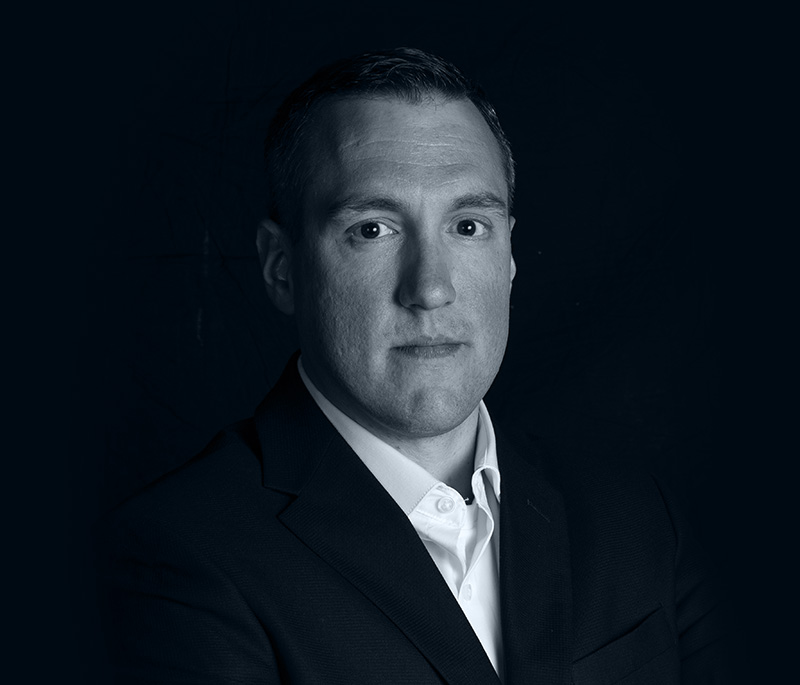
Shane
TJ
I would say when I first moved from New Jersey to Chicago. I made the move back to Chicago, one, for my family and, two, because New Jersey just wasn’t for me.
When I moved, I had a job lined up. I had high expectations for the role, but the environment wasn’t positive. I ended up not sticking with that company. This all happened on the cusp of COVID. I was unemployed, and the job search was tough. I had never been unemployed before and didn’t know what to expect since Covid had just hit the job market.
The situation worked great in the end because I’m sitting here, but it was one of the most difficult challenges I have ever had to overcome.
That is something I always talked to kids about when I was teaching: Failures and falling down are the best kind of motivators because they are an opportunity to learn. Those events were way outside my comfort zone, and the uncertainty of the whole thing was overwhelming, but it gave me the opportunity to set myself up for the success I’m seeing now. It motivated me in a way that I may not have had otherwise. So, I like to take those failures as a great opportunity.
Shane
TJ
Trust me, I’m somebody who falls down a lot. But our salespeople, managers, recruiters and everybody involved in our process fall down a lot too — it’s an important part of the process.
I like to tell my team that I’m a 90/10 guy. I spend 10% of my time on the problem and 90% on the solution. That mentality works great in business. Sometimes with my wife, it’s not the best, but I’m quick to say, “Okay, I understand there’s a problem. How do I fix this? How do I improve? How do I move forward?”
You never stop learning.

Shane
Liz
My greatest failure has been not letting go of things sooner. Controlling too much can actually stop your growth. In the past four years with Ōnin, we became multipliers of success.
Before, it was a little different. Since we were a smaller company, the opportunities for growth were limited. I’m very proud of what that company taught me and what I’ve learned. I just feel if I had let go sooner of control, we would’ve been able to give more empowerment to our teams.
What we accomplished now just blows me away. I have learned that it’s okay to let go of things and it’s okay to delegate. That’s creating opportunities to empower others to take on responsibilities.
Take a look at your team and realize that you’re not alone. There’s intelligence within your team. Take advantage of it. This will allow you as a leader to go out and accomplish greater things and bring more opportunities for them.
Although it took me a long time to let go, I don’t look at it so much as a failure because, in the end, I learned if I let go and empowered others, we would become multipliers of success. For the past couple of years, that is what we have accomplished.
I’m seeing it in all the branches, and I encourage everyone to trust your team with this. At Ōnin, we offer Tours of Duty. It’s a collaborative effort between leaders and Ōninites to chart the path toward the Ōninites’ future career aspirations. It involves strategically planning their tenure at Ōnin to align with and propel them toward their desired goals.
Having these Tours of Duty with your Ōninites is important because your goal is to build a relationship based on trust, and you want them to trust you. You’re going to be there to support them their entire way, and they’re not alone. They’ve probably never managed a branch, but if you’re there and you inspire them to go after their career goals, success will happen. Their success is going to multiply.
That’s exactly what I’ve seen since I started letting go. I always tell them, “I’m right here. I’m right behind you. If you need me, I’m going to step in.
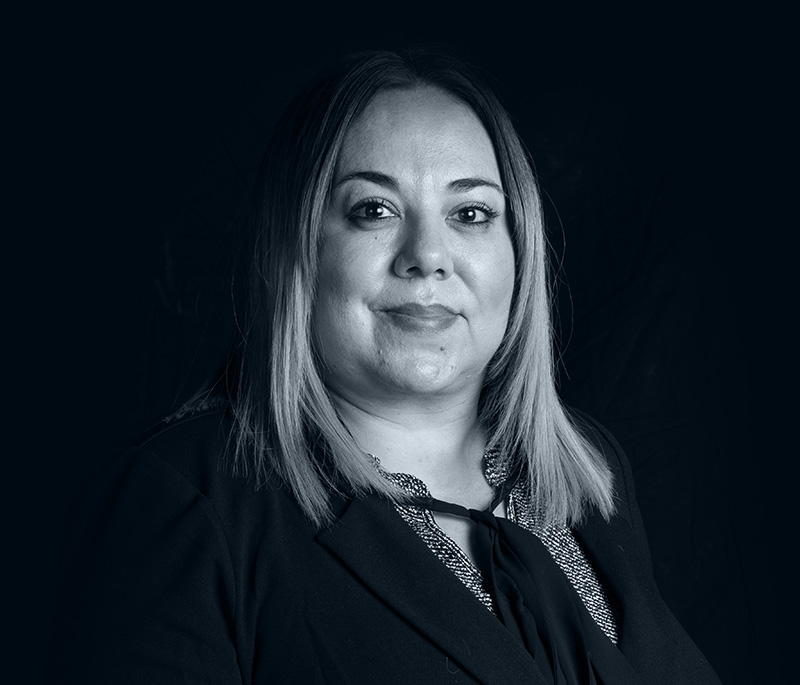
Shane
TJ
I have to talk about Liz on this subject. Liz is the definition of a multiplier. It should have her name in the dictionary next to that word. I was the first Ōnin hire after the acquisition. There’s a lot of longevity and tenure in the Chicago and suburb teams, but I wasn’t part of the 25-year group.
Coming in from an outside perspective, I have seen where everybody started following the acquisition and where they are now. People have really stepped up their game. I think that is a direct reflection of the empowerment and the opportunities that Liz and the leadership team provided not only to me but to them. I can guarantee everybody knows Liz will always be there from a leadership and support perspective.
The fact is, they want to try to do it themselves. Knowing they have that support system behind them gives them the confidence to step outside their comfort zone. For managers who may have never sold and for selling people like myself who have never done a lot of management, it’s a prime melting pot of ideas and different perspectives. Liz has always done an excellent job of helping us all navigate in different directions simultaneously.
Shane
TJ
That’s a result of spending time working in the business versus working on the business. As you grow your leadership at different levels, you have more of an opportunity to work on the business and growth versus spending your time doing the day-to-day work in the business and micromanaging, which is just time-consuming.
Shane
Liz
I’m not going to lie; sometimes it feels lonely once you’ve empowered others, but that’s because everyone’s doing their job, and they’re so great at it. Sometimes I think, “I don’t see anybody emailing me. Don’t you need help? Do you need anything?” But, they’ll call you when they need you if they know you’re there to support them. When they reach out, I assure them I’m never too busy for them. I’ll find the time to be there.
That’s what we want. We want them to trust us, trust the process, and take advantage of everything Ōnin has laid out for us. Why not take advantage of it? It’s free.
Shane
TJ
It was exactly what you were looking for, but you didn’t know you were looking for it.
Liz
I’ll mention one of the branch managers on my team. Sometimes, people don’t understand what we are talking about because we talk in half sentences, but she knows exactly what I envision and puts it together.
Now, I talk to TJ and the other members of our team, and they understand our mission and our vision. Within just a few words, they’re like, “Let me go work on it.” They come back, and I’m like, “Oh my, this was better than what I was thinking.”
Again, it’s about creating those opportunities and giving them trust. I have great Ōninites who tell us what the problem was and how they solved it. It’s just so amazing to see that.
TJ
Those are the best conversations, too. It’s great when you have 90 things going on in a day, and someone comes in and says, “We had this problem. Here’s what we did to fix it.”
Liz
It felt weird at the beginning. When someone walked into my office, I knew there was something that was getting dropped off on my desk that I had to take care of. I almost felt like a firefighter putting out fires every instant. Now, it’s totally different. That’s why I encourage everyone to let go and allow people to use their intelligence to help you run the business.
Shane
Liz
As a leader, you want to let your Ōninites know it’s okay to make mistakes. You’re not going to punish them. I don’t think we’ve ever fired anyone for making a mistake. In building that trust, you want to tell your team that it’s okay to make a mistake; you’re going to learn from it. You don’t want them to be afraid of you or scared of you because that’s when those mistakes start.
TJ
The mistake is not doing anything. It’s usually easier to fix a problem where a mistake was made because someone took action versus a mistake that was made because someone didn’t take action. I’d much rather see someone fall down than not take the leap.
Shane
Liz
Don’t be afraid to go after what you want to be in life. There are opportunities out there. I was very timid at the beginning of my early years. It cost me a lot to speak up, and it cost me a lot to say no.
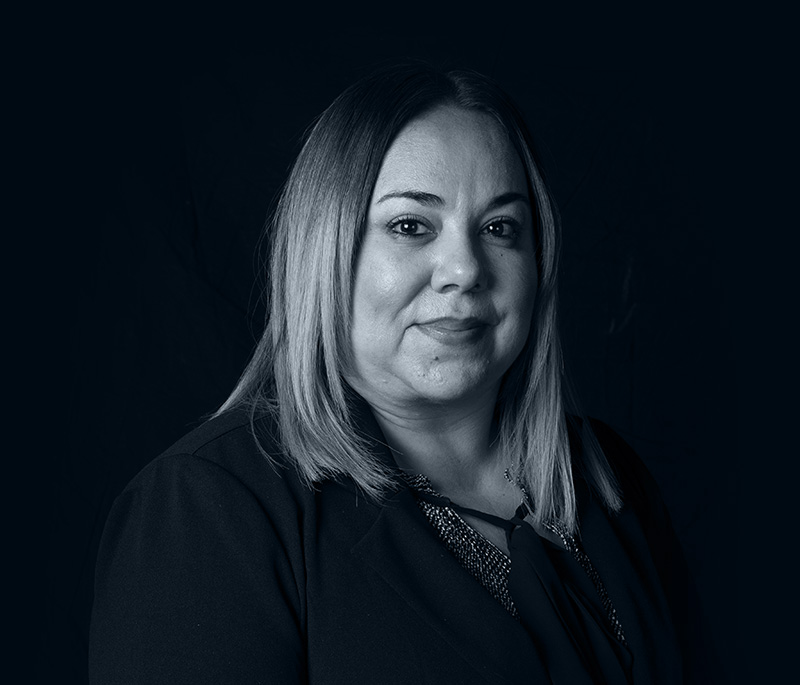
I’m not in my twenties anymore, but I’ve accomplished so many things in the past four years that I wanted to accomplish when I was younger.
When I talk to others in that age group, like my kids, I tell them, “Don’t ever give up. Don’t ever think that you can’t accomplish something someone else has. You can do it. Just set your mind to it. Be passionate about that, and you will make it happen.”
I’m living my dream right now because I’ve always loved to see the before and after. Since I was young, I loved to see the before and after of the transformation of a room, like my bedroom being cleaned. There was always something about that. That’s true now with our teams. I can see where we were, where we’re at, and where we’re heading.
Don’t give up. Never give up. Never think something is impossible. It doesn’t matter how old or how young you are. Although I’m not that young woman from 25 years ago, I still have dreams. They’re big dreams, but I’m not going after them alone. I’m going after it with a team, and I know we’re going to do it. Be ready for us because we have that energy — we’re fired up. To everyone out there, keep going.
Don’t stop. If you’re going to stop, it’s just to get an impulse to push even harder.
Shane
Liz
Yes, take breaks. TJ and I just discussed this. People have to take breaks. We have to disconnect for that hour because we can’t go without stopping. You have to reset yourself. Take time off, take a vacation, and enjoy yourself. It shouldn’t be work, work, work, work. You have to learn how to manage your time with work and life.
Shane
Liz
When you start saying no, your circle starts getting smaller, but it’s okay. You have to look out for yourself and your well-being if you want to help others. Sometimes, I give that advice without taking it. I’m talking about it because I want to be held accountable. It’s okay to say no to things that will affect your career goals, your dreams, or what you’re going after.
Shane
TJ
I have a two-part answer. The first part is to embrace your life. I never stopped to enjoy my twenties. I don’t think I ever slowed down. The second I got out of college, it was work, work, work, need to make money, need to stack. I had goals. I wanted a house, I wanted a car, I wanted this, I wanted that, and I needed money to do those things. My only focus was getting that done. I didn’t take two minutes to think, “Oh, I haven’t taken a vacation in over a decade. I haven’t stopped for my family in over a decade.”
The first priority was always that kind of selfish reason. So, my advice for myself would be to embrace life. You’re only around once. If you don’t take the time to enjoy it, what’s the point?
Shane
TJ
Right. They don’t say, “I wish I would’ve made that one more sales call. They say, “I wish I had taken that one more vacation. I wish I would’ve told that one person I love them one more time.” My mantra is to embrace life and embrace change. Embracing change is the second part of my advice.
In my twenties, I fought change. And if there’s one thing I’ve learned, especially in my time at Ōnin, change is a great thing, and it can bring cool, new, exciting things. If you embrace it as a constant, it leads you down this innovative path to gain success in your work life as well as your personal life.
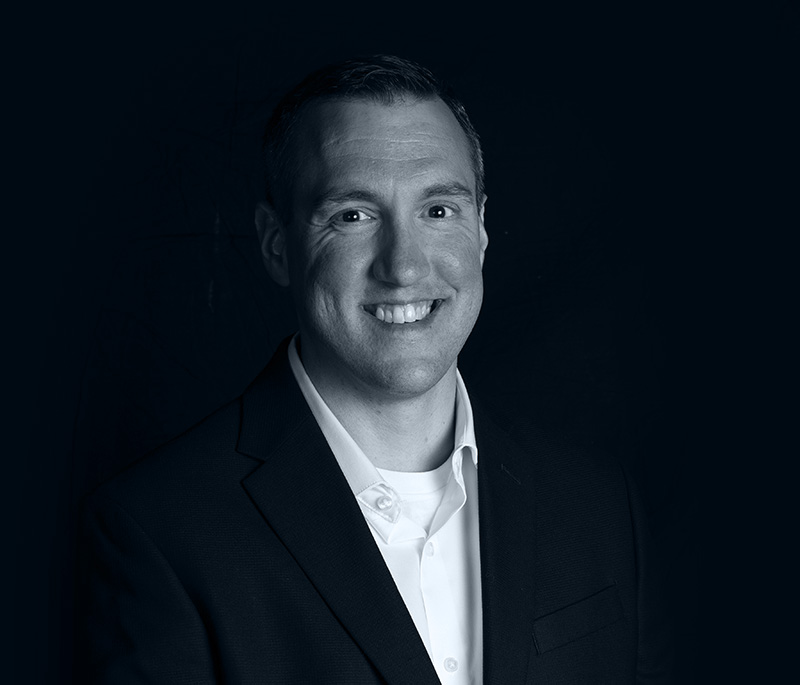
One of the hardest things I’ve had to break was having a negative mindset, but having that little embrace mantra in the back of my head helped.
Shane
TJ
I always talk to my team about taking your lunch break. It’s not there just to eat. It’s there for a mental break, too. I had a boss whose lunch was a jar of Jiff peanut butter that he’d eat with a steak knife. He would stop for 30 seconds, scoop some peanut butter, and then go right back to work until 6:00 or 7:00 p.m. every day. That was the mindset I adopted. I thought, “If I’m going to be successful, I can’t eat lunch.” That’s not true.
Liz
That’s why it’s important to have goals and objectives and actually write them down. You want to take your breaks like we said, write things down, and have a timeframe for when you want to complete them.
I’ve learned about objectives for the 25 years that I’ve been in this industry. I send my objectives to my leader because I want to be held accountable for them.
I also think that people need to create that good habit of writing because when you write them down, it’s much easier to track and see your progress.
Sometimes, you’re running too fast, and that’s when you need to slow down before you burn out.
Shane
TJ
I’m with you. Liz always talks about taking time to celebrate. As a leader, you will be held accountable when things don’t go well, and you’ll feel the negative, bad side of responsibility. If you don’t take the time to celebrate, it’s just going to make that negative aspect worse, and it will be harder to push past it. If you grab onto success and celebration, you will continue striving for those moments. It makes the negative side of leadership less frequent and more bearable.
Shane
Liz
Don’t. You will drain yourself. I learned the hard way that your goal shouldn’t be to please everyone.
TJ
Right. It comes down to finding something you love to do. I’ve worked many different jobs, from flipping pizzas to making coffee. I was the king of minimum wage from high school through college. If there’s one thing I wish I had learned quicker, it was that I needed to find something I love to do. And if you find something you love to do for work, it does not feel like work.
Shane
Liz
That’s where we go back to slowing down. It’s okay to go after your dreams, your passions, and your goals, but you also need to learn when to slow down.
Learn to balance. Having a successful career only does me well if I take care of my health and relationships at home. We need to analyze all that and not go crazy over something that will jeopardize our health or our lives.
Shane
Liz
That has helped me realize that I need to get healthier. I need to make better decisions about what I intake and how I take care of myself because if I’m gone, many people close to me will suffer. And everything I’ve done for the past 25 years would have been in vain. It’s okay to keep going after what you want to accomplish, but learn when to stop and when to slow down.
I encourage others to find their passion and be passionate about what they enjoy. But if your passion gets out of control to the point where you’re so into your job that you stop taking care of yourself — then maybe you need to reevaluate your priorities.
Shane
TJ
To your point, if you’re focused on just one thing, that one thing can get on your nerves, and you’ll nitpick every single thing. You’ll start to resent it, even if that one thing’s something you love.
I can’t think of anything worse than starting to resent something I used to love to do, whether it’s a sport, work, or whatever.
Shane
TJ
You have to be willing to ask questions. The other part is you have to be willing to have hard conversations. Those are two things that I expect someone coming into this role to need.
In the branch manager role and in a selling role, there are times when you have to have what I call “adult conversations.” It may be with a team member or a client, but they need to be willing to ask hard questions. For example, you may have to have a conversation with a client about the tough reality they are operating in. You have to say, “Here’s the reality of your situation. Your environment is not very clean, your pay is very low, your job is very difficult, and you’re looking for a specific type of Teammate. You won’t find that person or people you are looking for.”
The conversation should be about understanding the situation and providing them with data to support any findings or solutions. That’s not an easy conversation because you know it’s not always something they want to hear. They want to hear their job is perfect, their environment is excellent, their pay is phenomenal, and they’ll get everything they want. But that reality isn’t the case 90% of the time.
From an internal perspective, we give every Ōninite a Tour of Duty. I think the Tours of Duty require hard questions. Asking somebody what they want in life is not easy to ask or to answer.
Shane
TJ
Right. Especially when you lead it off with, “Your trajectory doesn’t have to be something within Ōnin.” They may think, “Woah, are you telling me I should quit?” But that’s not what I’m saying. Rather, I’m telling them I want to be the best stepping stone they’ve ever stepped on if this isn’t their final destination.
I just started interviewing for a position, and that’s one of the things I always tell people when I talk about Tours of Duty. At Ōnin, we want you to be successful, and we’re here to walk the path with you. If the path doesn’t lead to Ōnin in the end, I understand, but I’m telling you, I’m going to be the best stepping stone you’ve ever stepped on. So what do I need to do to get you there?
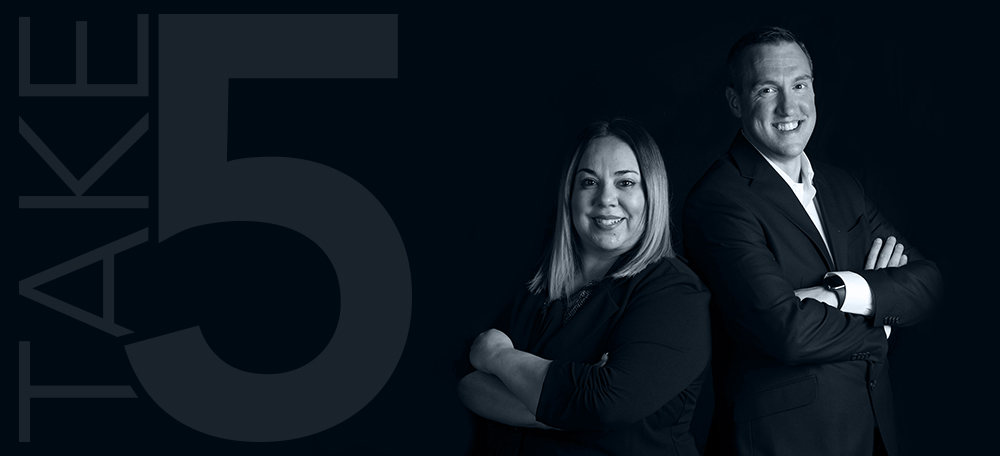
Shane
I immediately thought, “How can I help you grow this department and also prepare you for what you want to do next? It changed the dynamic in such a positive way. She left right around three years because she got another position, a career upgrade. She went from basically a marketing manager to a marketing director, but without that conversation, she would have never even thought of going there.
TJ
That is the definition of trusting the process. You did the 90/10 problem-solving process right there without thinking about it. You thought, “What can we do to get you to where you’re going? What can we do to make you successful at Ōnin while you’re here? And what can I do to help grow the department and grow you at the same time?” You literally did the math.
Shane
Liz
First and foremost, this person must enjoy working with people. I want someone in this role to give people a chance to seize an opportunity. My boss gave me an opportunity 25 years ago even though I had never worked before.
I was so shy I could barely speak to my boss to even ask for a lunch break, but somehow I managed to earn his trust, and he believed in me and gave me an opportunity. The rest is history.
That experience has influenced who I’ve hired. Most of the Ōninites on our team have never been in this industry before or have never worked. I’ve learned that giving people an opportunity and being there to help them through it creates success on many levels.
Someone in my position should enjoy making a change, breaking a cycle, and giving someone an opportunity, whether it’s a woman wanting to change their career after 15 or 20 years or it’s giving a student who has recently graduated an opportunity to enter our industry.
So many folks are turned away from a job because of what their resume says. Give yourself the time to talk to someone and to learn about their career goals.
If someone interviewing for my position as an area manager or in any position of leadership said, “I don’t want to have to mentor and coach people every single day,” “I’m not a people person,” or “I want a team that’s ready to go,” I would not consider that individual. Because we work with people every day, it’s important to listen to what their goals and desires are.
Although many of our current Ōninites had not been in the staffing industry before, through mentoring and coaching, we’ve seen how they have reached their goals. If your Ōninites ask you for an opportunity, my suggestion is to work with them and give them a chance. Ōnin provides all the necessary tools to succeed. We see it with The Road to Success and our Recruiter Road program.
Shane
Liz
I’ll be very transparent. I started the industry when I was 21 years old, and I had a hard time talking to people. I actually flunked kindergarten because I wouldn’t speak. Now — be careful if you start a conversation with me.
Shane
Liz
I asked my mother, “Are you sure that’s why I flunked — because I talk so much now?” But, she confirmed that I wouldn’t talk.
I share this to encourage young people who are afraid to take a chance or to ask for an opportunity. If there’s something you want to do, ask for the opportunity. Hopefully, you’ll find an employer like Ōnin that will give you that opportunity.
Sometimes I say I’m lucky, but my mentor has said to me, “It’s not that you were lucky. You put your heart and efforts into your goals, and you worked.” And it’s true — I have worked to be where I’m at now.
Shane
Liz
Today, I sit back, and I look at what’s transpired in the last four or five years. I look at my area and branches and where everyone on the team is positioned now. I say, “Wow, this really works.” I continue to trust the process, and I continue to trust our leaders. If you take advantage of the resources and tools Ōnin provides, you will succeed.
Shane
TJ
Build trust at all levels. If you build trust with your team, you will empower everybody around you to trust the process and the team around them. The success is bottomless at that point. You don’t want to be the only person driving the success bus. You want everybody on board to take turns as you empower them to take charge.
My goal is to continue the legacy of success even after I’m gone, so I think I would be doing a disservice to the team if I didn’t trust in them to be successful — and frankly — be their own person.
That’s one thing that Ōnin prides itself on: We have so many different personalities and so many different points of view. Shame on us if we don’t take advantage of that.
Liz
I would say, know what the company’s vision and mission is. Get to know your team. Sit down with them, listen to them, and learn about them. Don’t assume a characteristic just because you’re observing them. Take the time to know them deeper. You want to learn who your team is so you can work with them and help them reach their goals.
Sometimes, if we’re going too fast, we only think about what we want as a leader. We must be very clear with the team, lay out the expectations, and ask if they understand what the outcome should be.
TJ
I like the listen-first mentality, especially coming in as a new leader. If you don’t know where your team has been, it’s going to be really hard to take them forward. Understanding your team on an individual level makes it easy to put the pieces together and guide everybody in the direction you’re trying to go.
Shane
Liz
I believe the opportunities for Teammates to work for Ōnin will increase. People are realizing that being a Teammate at Ōnin is a great opportunity — something they’ve never had in their life. Word of mouth about Ōnin will continue to spread.
Ōnin continues to innovate and work to break the cycles of poverty. Many contingent workers have never been checked by a doctor or even gone to a dentist appointment until they received affordable benefits through Ōnin.
I listen to these conversations our Teammates have when they come into the branch and when they leave Google reviews.
Next time you see a Teammate, ask, “Why do you work for Ōnin?” or, “Who referred you and why?”
We’ve had clients with crazy rules that contingent workers couldn’t switch through another agency unless they waited a certain period of time, but people wanted to transfer to Ōnin. I’ve had clients call me and say, “We are not going to hold people back from having the opportunity to have all the benefits Ōnin offers.”
TJ
To build on Liz’s assessment, I always talk to the team about how Ōnin is not cookie-cutter. We’re not like every other staffing company. Our difference starts with the recruiters and the conversations they’re having with the Teammates. Since COVID, work ethic and reliability have become increasingly important factors in job success. Our goal isn’t to throw a bunch of people at a job that they will hate.
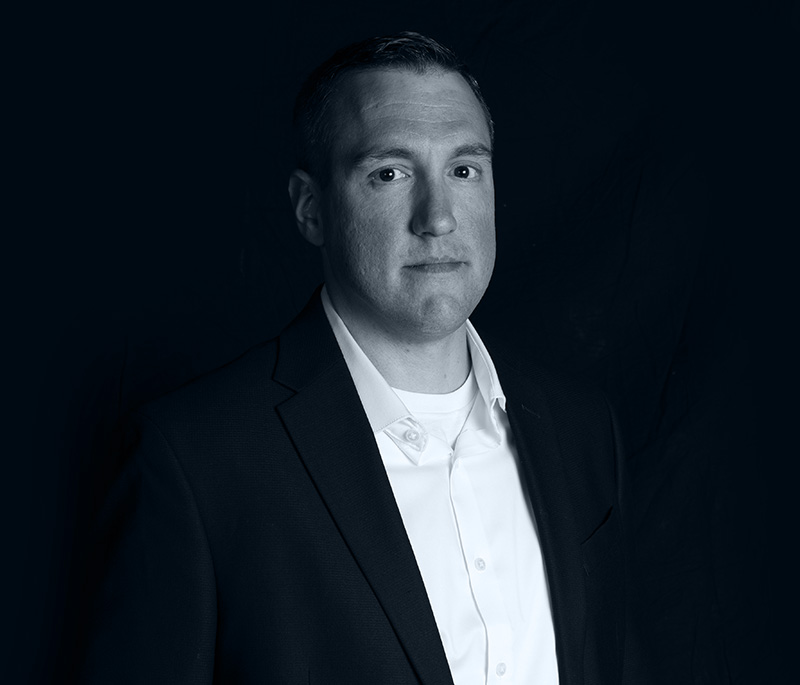
Successful worker retention comes down to the recruiters having more in-depth conversations, listening first, asking the Teammate what they’re looking for, and explaining the differences between Ōnin and the other staffing companies.
TJ
It’s one of my favorite things to hear a Teammate say, “Nobody’s ever asked me that,” knowing that the Teammate has probably been to three other agencies that day alone. Those can be the most reliable Teammates.
One of the things I see in the market right now from COVID is a lot of upward mobility opportunities. I love watching Teammates take advantage of a good opportunity. There’s a “lead the horse to water” concept at play. We can show workers where the opportunity is, but we cannot force a Teammate to drink. It comes down to helping that individual understand what can be gained from the opportunity and understanding what they’re looking for in life.
Stepping outside of that cookie-cutter staffing agency mentality creates scarcity for the types of roles you offer. I hear the recruiters tell Teammates all the time, “We don’t just place anybody, and we don’t just work with any client. We are not like the other three agencies you walked into. We provide these amazing benefits. You have the opportunity to take advantage of 401k. What’s your family’s situation? How’s life? What are you looking for in a job or a career? Do you have an end goal in mind?” It’s just so interesting to hear where the conversations go versus, “Here’s the job. You’re doing this from this time to this time. It pays this. Do you want it?”
Shane
It’s good to mention, too, that when you’re teaching a staffing recruiter to ask those kinds of questions and have tough conversations, you’re also teaching them how to be a leader. It’s how we will raise up more operationally focused leaders as well. As you both were sitting there talking about how things are changing, I realized we’re growing leaders at every level. Thank you both so much for taking the time out of the day to do something unexpected.
TJ
I have learned to always expect the unexpected at Ōnin. It is truly the best part of being a part of this team.


